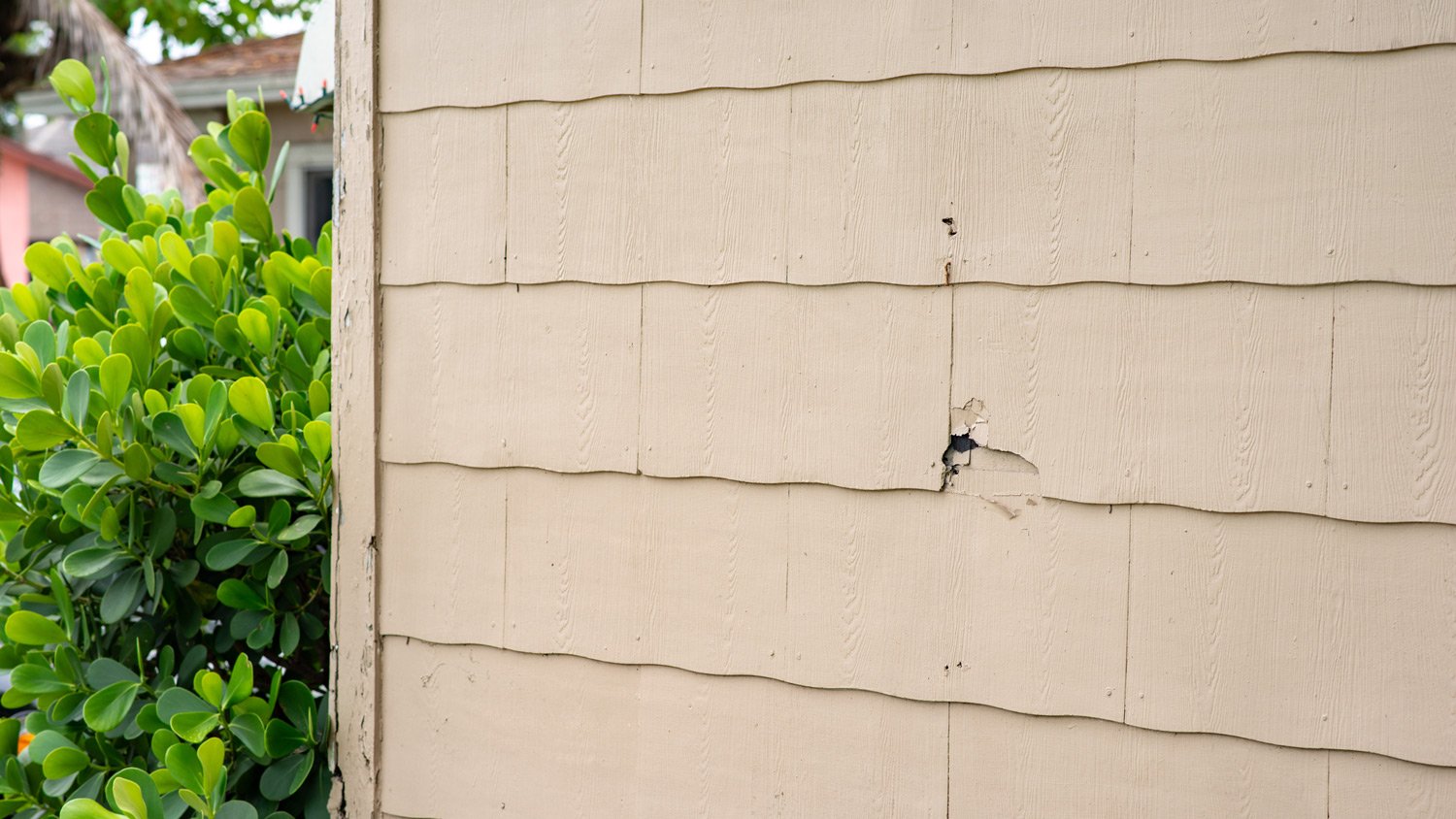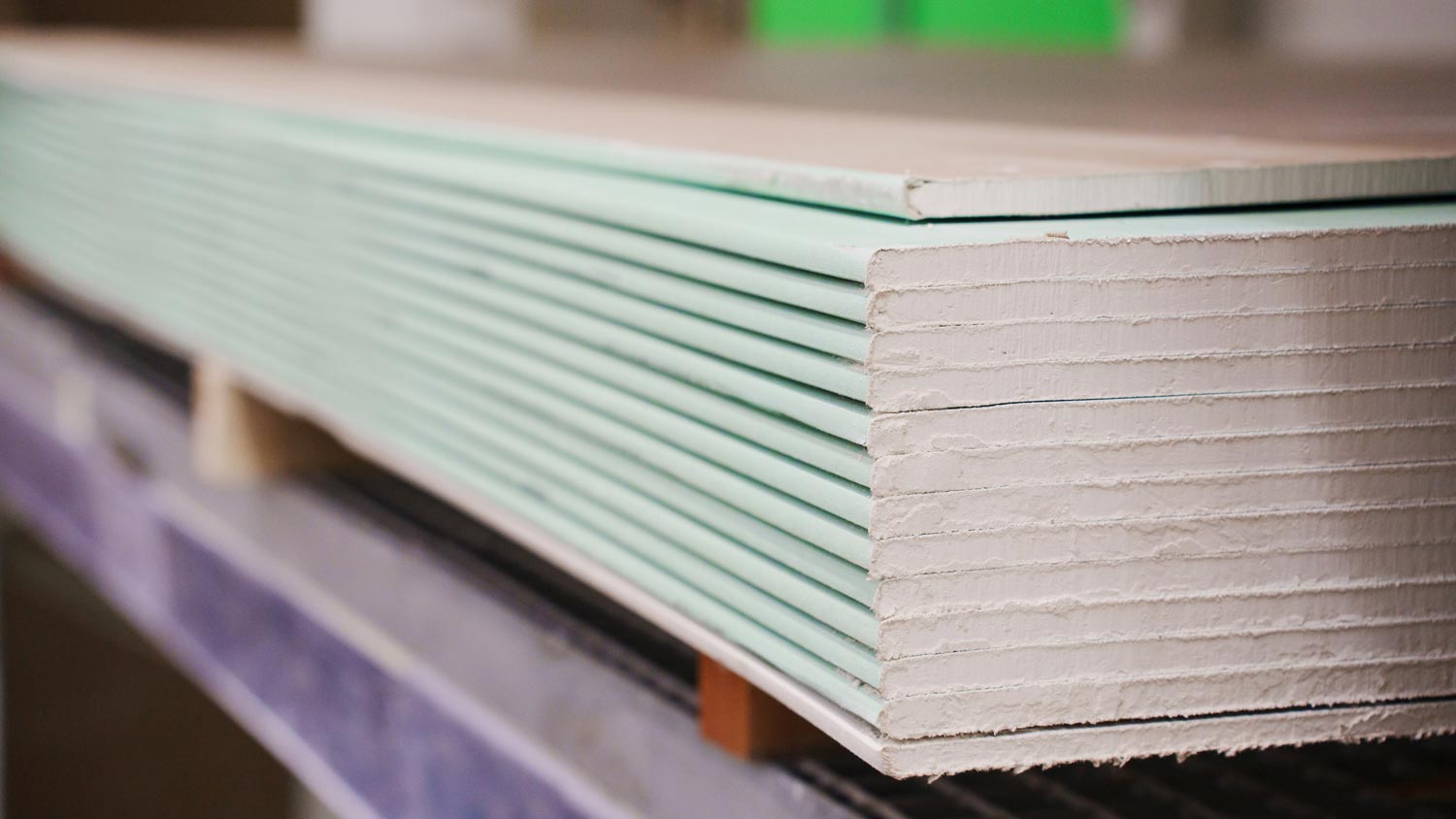Could Asbestos be Lurking in Your Home?
Though rarely used now, disturbing asbestos-containing materials in older homes poses a real danger.


Planning to tear out siding, roofing, flooring tiles, popcorn ceiling or insulation this year? Before replacing these materials in your home, be sure to protect yourself from the danger of asbestos exposure.
A hidden home health hazard that’s largely dropped out of the national spotlight — except on those late-night TV infomercials about mesothelioma — asbestos likely remains in millions of homes, especially those built beginning in the early 1900s through the late 1970s.
Although undisturbed asbestos poses no known harm, homeowners need to know the dangers involved when remodeling, along with the consequences of exposure and proper removal methods.
Asbestos Awareness Week
Global Asbestos Awareness Week is April 1-7. The International Asbestos Awareness and Prevention Conference takes place April 8-10 in Washington, D.C. To learn more, check out the Asbestos Disease Awareness Organization.
Dangers of asbestos exposure
Exposure to asbestos can lead to respiratory problems decades later, including mesothelioma, lung cancer and asbestosis (scarring and stiffening of the lungs).
Testing for asbestos shortly after exposure typically yields no results, says Joan Ketterman, training manager for the Environmental Management Institute in Indianapolis, but exposure to asbestos over long periods of time can be deadly.

"There's no real way to know if there's asbestos in your system until it manifests 10, 20, 40 years later," Ketterman says. "Realistically, it's almost impossible that one or two exposures would make you sick. The people who get sick from asbestos have had long-term exposures."
While there's no way to know the amount of asbestos exposure it takes to cause health problems decades later, health experts — including the Centers for Disease Control and Prevention, EPA and the Occupational Safety and Health Administration — say there is no safe level of asbestos in the body.
What is mesothelioma?
Mesothelioma is a form of cancer caused by exposure to asbestos. It most often attacks the chest and abdomen. The Centers for Disease Control and Prevention estimates mesothelioma has killed nearly 40,000 Americans since 1999.

Regulation and oversight of asbestos
Although the EPA established minimum rules nationwide for working with asbestos, many local and state municipalities regulate the industry differently or not at all.
For instance, Dave Krecek, general manager of Danley’s Garage World in Northbrook, Illinois, says Cook County adopted some of the more stringent regulations in the country by requiring anyone who demolishes or renovates single-family homes or structures, such as garages, to check for asbestos no matter the age of the structure.

However, Krecek, who holds a state asbestos building inspector license, notes that enforcement is spotty at best and he says he’s caught other contractors falsifying asbestos testing or not doing it at all when demolishing old garages. Krecek says it’s imperative for homeowners to make sure their homes get tested and contractors follow proper work practices.
“If Angi thinks lead is dangerous, try asbestos on for size,” says Krecek, referring to the Angi lead safety article package published in September 2014. “At the residential level, [governmental regulators] don’t care unless someone gets hurt 20 years from now or an OSHA inspector observes unsafe practices.”
Ketterman says the safest thing to do with asbestos is usually to leave it alone.
“Asbestos doesn’t become a danger to the homeowner in things like cement and flooring until it becomes airborne,” Ketterman says. “If your flooring has asbestos tiles, it’s not hurting anybody — until they decide to drill through it.”
There's no way to identify asbestos on sight, Ketterman adds, but it was commonly used in vinyl and linoleum flooring tiles, in particular on 9-by-9-inch tiles and sometimes on 12-by-12-inch tiles. The vinyl sticky-back flooring commonly had it, as did asphalt-style flooring, she says.

Asbestos testing
If you plan to demolish or remodel part of an older home, asbestos can become a big issue, as that type of work can release the asbestos fibers and create serious risk of asbestos exposure. And your contractor may not readily volunteer that testing may be needed.
Larry Enos, owner of All Clear Environmental in North Hollywood, California, advises homeowners with potential asbestos issues to get asbestos testing and a renovation survey done before doing any major work.
“If you’re tearing up asbestos flooring material, drywall compound or siding, that’s where you can get into trouble,” Enos says. “A lot of general contractors won’t tell the client they need this.”
He also urges homeowners to get copies of all documentation, such as OSHA reports and inspection records, during the course of asbestos abatement or an asbestos-related remodel to confirm any findings.

It's best to hire professional asbestos contractors to test for asbestos and do removal work, and it’s probably best that the testing and work be done by separate entities. Some state laws in fact require this, so homeowners should be aware of state and local regulations when they hire.
"In California, it is a conflict of interest for an asbestos removal contractor to test for asbestos," Enos says. "I do recommend testing be done, but I do not do the testing."
Often, general contractors don’t want to be involved for liability reasons.
“Most general contractors won’t do asbestos projects,” Ketterman says. “If they find out there’s asbestos, they’ll just say, ‘Oh, call me back when it’s gone.’ Some will ask about it and some won’t.” Sign in now as an Angi member to find independent asbestos pros to either test your home or remove asbestos safely.
In a 2011 report, the Government Accountability Office found that more than 3.3 million claims valued at $17.5 billion have been paid out, and at least 100 companies have declared bankruptcy at least partially due to asbestos-related liability. The GAO also says trusts have set aside a total of more than $37 billion to pay out future claims. Fitch Ratings estimated in 2015 that total insured losses due to asbestos litigation could top $90 billion over time.

Cost of asbestos testing
Asbestos testing generally costs a few hundred dollars, Ketterman says. The federal government does not license or accredit asbestos testers, so check to be sure any professional you hire meets licensing requirements for your state or municipality.
Before she became an Angi member, Kathy Berry of Catawba, South Carolina, learned the importance of hiring an independent asbestos inspector after she hired a remodeling company to work on the kitchen in her 1970 home in 2013. She says the company deliberately hid the results of an asbestos test from her and proceeded to sand down underflooring which contained asbestos.
“They told me the test showed just a trace of asbestos and it was nothing to worry about, but I later contacted the inspector myself and found that the level was much higher,” Berry says.

Berry proceeded to thoroughly clean her home, but says she still worries that asbestos released during the renovation could have long-term health effects on her and her family.
"I'm worried about my granddaughter,” Berry says of her then 15-month-old grandchild, who came into the house when dust from the sanding was present. “The doctor said he didn't think there would be any health effects because of the minimal amount of time she had been in here, but you never know. Asbestos problems don't arise for years later, and there's nothing they can do to test for it."
Ketterman says there's not much you can do to test a home for asbestos after the work has been completed, either by a contractor or a DIY job, except to pay for another asbestos test. She advises a thorough cleaning, like the one Berry mentioned, to get rid of any debris remaining on horizontal surfaces, such as door frames and chair rails. Be careful to wipe down the affected areas without causing the dust to become airborne.
Asbestos removal
Paul Ilacqua, owner of Asbestos Man Removal in Plymouth, Massachusetts, says he most frequently encounters asbestos in basement pipe insulation. He says this should cause homeowners the most concern, since unlike asbestos siding, tile or roofing, insulation can easily deteriorate. Homes with boilers are the most likely to have asbestos insulation.
“This was put up 50 or 60 years ago, so it’s probably not in good condition, whether or not you disturb it,” Ilacqua says. “If that insulation is coming apart, a good gust of wind when you open up the basement door can send the particles airborne.”
Ilacqua says the average asbestos removal job costs about $1,500, though it can vary widely depending on the extent of the work.
Proper work procedures for asbestos removal include fully sealing off the work area with multiple layers of plastic, equipping workers with respirators, and setting up an air pump that monitors fiber counts in the air. Materials should be wetted down prior to the work to minimize any chance of releasing asbestos particles into the air.
Editor's note: This is an updated version of an article originally published on Oct. 24, 2013.
— Additional reporting by Doug Bonderud, Angi Contributor





- 4 Signs of Asbestos In Your House
- Do Home Inspections Check for Asbestos? What You Need To Know
- How to Clean Asbestos Safely
- Where Is Asbestos Found in a Home?
- How Do I Clean My House After Asbestos Exposure?
- What Does Asbestos Look Like?
- When Was Asbestos Used in Homes? What to Know About the Once-Popular Housing Material
- What Is Asbestos?
- How to Test for Asbestos Safely
- How Is Asbestos Removed From Homes?










